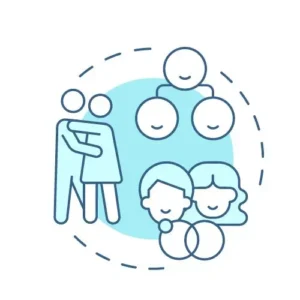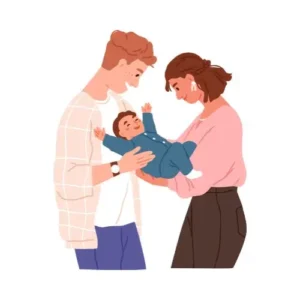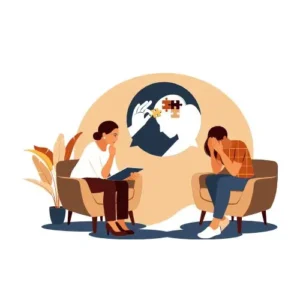Introduction
Premarital counselling involves discussing important relationship topics to evaluate compatibility and equip couples with skills for a healthy marriage. By addressing critical issues beforehand, counselling helps marriages get off to a strong start.
Specifically, tailored questions are asked to uncover potential challenges and strengthen strengths. This article covers some common ones across key evaluation domains.
Key Statistics About Premarital Counseling
| Aspect | Details |
|---|---|
| Divorce Rates | Couples who receive premarital counselling have 30% lower divorce rates |
| Areas Assessed | Compatibility, communication, conflict resolution, expectations, finances, intimacy, family plans |
| Sessions Needed | At least 3-5 sessions are recommended for effective evaluation and preparation. |
| Types of Counseling | Psychoeducation, skills-building, assessment inventories, role plays, relationship exercises |
| Benefits | Higher marital satisfaction, quality, and adjustment. Lower domestic violence infidelity risks. |
Relationship History

- What attracted you to each other initially?
- How long have you been dating, and what stage is your relationship currently in?
- How did you meet and start dating? Did any issues come up along the way?
- What do you love most about your partner? What are some challenges?
- Have you lived together before? How did that go?
Communication Skills

- Describe your communication styles. How do you typically discuss problems?
- How do you make decisions as a couple – jointly or independently?
- How do you negotiate or compromise when you disagree on something?
- How do you argue or fight – what triggers conflicts, and how do you resolve them?
- Do you find it easy or hard to share feelings openly? Why?
Family Background

- Tell me about your family upbringing – closest relationships, household dynamics, parenting styles.
- How did previous family experiences shape who you are today?
- Do you have any unresolved issues from your childhood? How might they impact marriage?
- What are your parents/siblings like? How involved are you with your families?
Expectations From Marriage

- Why do you want to get married at this stage in life? What prompted the decision?
- What expectations do you have from the roles of a husband and wife? How did you each learn about marriage expectations?
- What will and won’t change after marriage? How compatible are your views?
- What is most important for a successful marriage to you – intimacy, communication, shared interests, children, etc.?
Financial Management

- What is your combined income potential? Savings, assets, and liabilities? Spending habits?
- How will financial decisions get made – joint account, separate finances, budgeting?
- What financial goals do you share – home ownership, retirement, kids’ education, etc.?
- How will lifestyle changes like job losses, health issues, and kids be handled financially?
Intimacy

- How would you describe your intimacy levels and the quality of your physical relationship so far?
- What are your expectations, desires, and views on intimacy after marriage?
- Have differences come up before? How comfortable are you discussing intimacy openly?
- Do any past traumas or experiences impact your intimacy? How will you support each other?
Parenthood & Family Planning

- Do you both want children? If so, how many, and what’s your timeline?
- How will parenting roles and responsibilities be divided? Parenting philosophies?
- How will you balance work life and kids? Prioritize each other amid new responsibilities?
- How do your families feel about your plans? Will you have their support?
Lifestyle & Personal Growth

- What personal hobbies and interests do you share or have individually?
- How will you make time for each other amid busy lives? Date nights, vacations together?
- What are your views on personal growth within marriage – continuing education, careers, self-improvement?
- How will lifestyle changes like health issues, ageing parents, and moves be jointly handled?
Conflict Resolution

- What triggers do you try and avoid when arguing? Communication roadblocks?
- How can disagreements get discussed and resolved constructively?
- What compromise and problem-solving styles suit you both best -win-win, alternating?
- Are you willing to acknowledge faults and say sorry when needed? Forgive and let go of issues?
Commitment & Decision Making

- What does being “committed for life” mean for you both in practical terms? Fidelity, priority, teamwork?
- How will lifestyle, career, and family decisions that impact each other get taken?
- If challenges arise like job loss, debts, and disabilities – how committed are you to stand by each other?
Premarital Counseling Goals

- What challenges, if any, do you foresee in your marriage and want help addressing proactively?
- What strengths do you want to enhance – intimacy, communication skills, financial planning etc.?
- How can counselling help you get the best start possible for a healthy, thriving marriage?
Discussing these questions candidly and using counselling as a partnership-building tool lays the foundation for understanding each other better and equipping the relationship for lifelong challenges.
Conclusion
Conclusion Premarital counselling provides a structured process through which the couple shall examine their compatibility level, build useful relationship skills, and prepare for a good marriage. With frank and open discussions regarding issues like communication style, level of intimacy, money handling, family planning, and conflict resolution styles, partners gain much-needed insight about themselves and each other.
They will also be able to highlight areas they need more work on and utilize tools and guidance provided through counselling. Accurately, pre-marital counselling, if done with at least 3-5 personalized sessions, will greatly reduce divorce risks by setting the marriage on the right track from the beginning. Overall, investing time in evaluation and skills development via pre-wedding counselling lays the foundation for lifelong commitment, satisfaction, and adjustment within a relationship.

